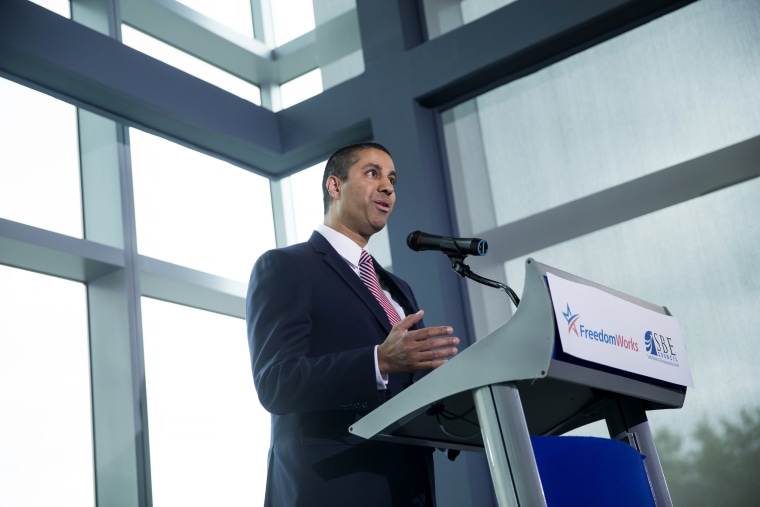The plan to kill Obama-era net neutrality rules is officially here.
Federal Communications Commission Chairman Ajit Pai said on Wednesday that he's beginning to roll back net neutrality rules, a process he says will promote competition, create jobs, and give more Americans access to high-speed internet.
"Nothing about the internet was broken in 2015," he said, speaking of when the FCC moved to regulate the internet as a public utility under Title II of the Telecommunications Act. "It was all about politics."

Related: House Votes in Favor of Letting ISPs Sell Your Browsing History
How is the Internet Regulated Now?
The internet is now regulated under Title II, which was created in the 1930s to regulate the Ma Bell telephone monopoly. By applying these rules to internet service providers, the FCC has more authority to regulate the behavior of internet service providers, including helping to control what consumers are charged and ensuring there is no paid prioritization online, which would create so-called fast and slow lanes.
Among the four basic points are not blocking websites for certain users, no throttling (creating a fast and slow lane), fostering more transparency between consumers and ISPs, and finally, no paid prioritization to move to the front of the line.
That all may sound great, but Pai says it's not working. He wants to go back to the internet rules instituted in 1996 under President Clinton and a Republican Congress.
What's the Case for Rolling Back Obama-Era Rules?
“The internet is the greatest free market success in history," Pai said. However, he believes the "heavy-handed" net neutrality rules were never needed, aren't helping people as intended, and are in fact doing the reverse.
He said the rules have led to reduced investment, which he said has cost 75,000 to 100,000 jobs such as laying cable and digging trenches to help bring high-speed internet access to rural and low income areas.
The current framework, he said, is actually "widening the digital divide," because companies are avoiding rural and low-income areas because it may seem like it's "not worth the time and money to deploy there."
As a result, he said, this also reduces competition.
“There is no question that the easiest path would be to do nothing," he said. “When we are saddled with FCC rules that will deny many Americans high speed access and jobs, doing nothing is nothing doing.”
“We need rules that focusing growth and infrastructure investment," he said. "We are going to deliver."
What Happens Next?
The FCC will vote at a May 18 meeting whether to formally consider Pai's proposal. That will likely pass, at which point the commission will seek public comment.
Another vote, which could happen before the end of the year, would then decide whether Pai's proposal would take effect. But for now, you won't see any immediate changes.
"This will be the beginning of the discussion, not the end," Pai said.
NBC News is owned by Comcast, the nation’s largest internet service provider.
Comcast Chairman and CEO Brian Roberts said in a statement, "We fully support reversal of Title II classification. We continue to strongly support a free and open internet and the preservation of modern, strong, and legally enforceable net neutrality protections.”